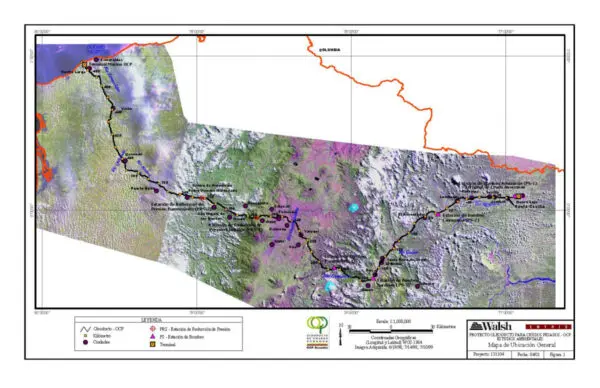The NCEA issued an advisory review of an Environmental Impact Assessment (EIA) for an oil pipeline. It concluded that the EIA in general is of sufficient quality, but that there are nevertheless opportunities for further improvement of the EIA report and the Environmental Management Plan (EMP).
Significant details
The Ecuadorian Minister of Energy and Mines signed a contract with Oleoducto de Crudos Pesados (OCP) to construct and operate a heavy crude oil pipeline and to provide public services for hydrocarbons transportation. According to Ecuadorian law, an EIA has to be undertaken and approved before construction begins. This EIA was indeed conducted, and the environmental ministry of Ecuador requested the NCEA to review it.
In its advisory review, the NCEA observes the following:
- The information in the EIA report is sufficient for informed and environmentally sound decision-making;
- However, limited deviations from the projected 2 kilometer corridor should still be allowed if results from detailed design studies require this.
Recommendations to further improve the EIA are:
- Include a description of possible exploration and development activities in the Amazon area that are associated with the oil transport system, and assess their environmental and social impacts;
- Pay special attention to feedback of public participation and show how public comments will be taken into account in decision-making and implementation;
- Prepare a more transparent comparison of alternatives, e.g. by means of a visual presentation.
The NCEA further recommended that the Environmental Management Plan elaborate on:
- A procedure for disposal of chemically contaminated water;
- An approach to deal with biologically important areas during construction and operation, and which mitigation measures will be taken;
- The possibility to provide funds for a long-term plan for integrated conservation and development (e.g. eco-tourism);
- Species to be monitored including species which are critically endangered;
- Compensation of negative socio-economic impacts as a result of calamities.
Advisory reports and other documents
11 May 2001: Advisory review

